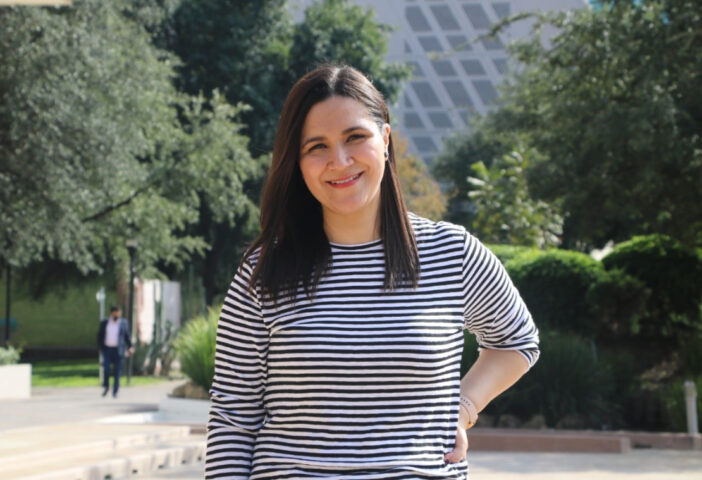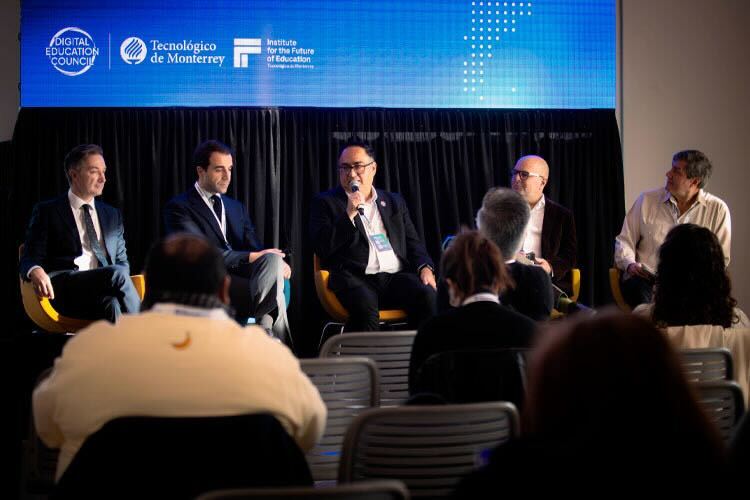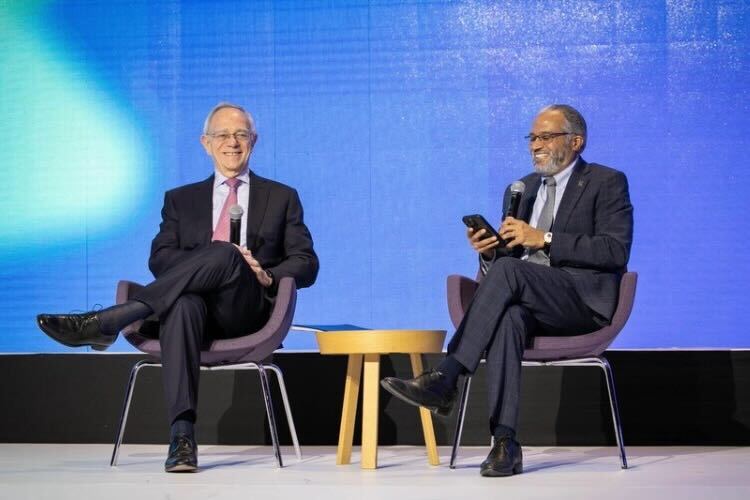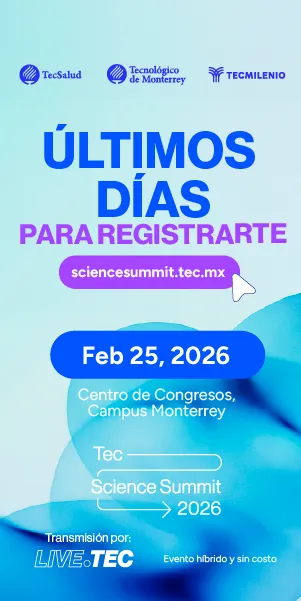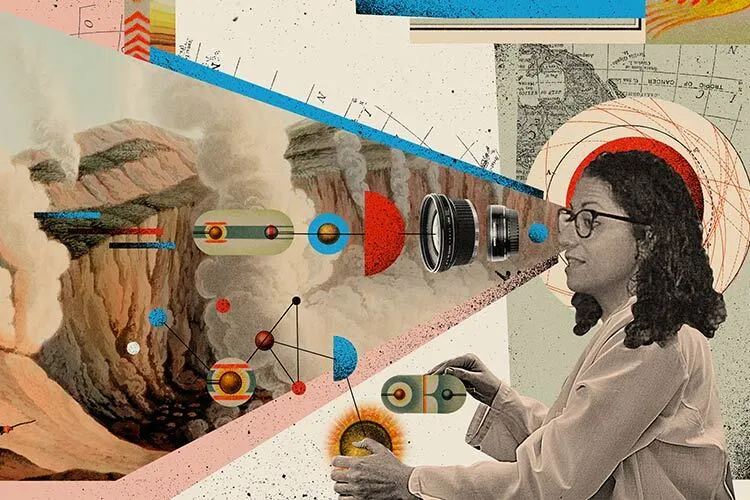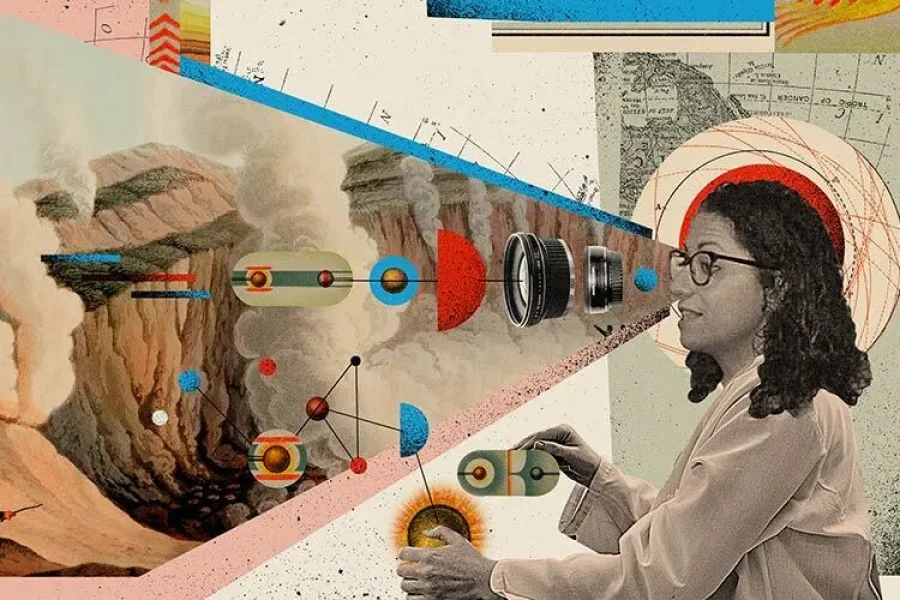Carolina Rodríguez Garza, also known as “mujer cohete” (rocket woman),” fell in love with the Universe when she was a child. This romance began while accompanying her father to water the Serrano chili fields at night in Tamaulipas and Nuevo León.
“The advantage of living in a small town was that there was no light pollution and the sky looked impressive. I watched it from my dad’s truck for hours,” she said in an interview for the Medusas of Science Program broadcast by Ciudadana 660 AM.
However, everything changed one day when the heat was unbearable, and Carolina’s family decided to sleep outside to cool off. While they were looking at the sky, her dad asked her if she knew that the Earth was moving.
“It really shocked me,” she says. She couldn’t believe it nor understand it. Why didn’t she feel it? She never stopped wondering about it.
“Astrophysics was the only way I could find answers.” Rodríguez Garza is the first astrophysicist to be the director of the Engineering Physics degree at the Monterrey campus of Tecnológico de Monterrey.
She is also the co-author of the first radio astronomy article in affiliation with the Tec, published in The Astronomical Journal on the discovery of maser emission from water molecules.
Liftoff for the “rocket woman” on social media
There are approximately 200 astronomers in Mexico, according to the “rocket woman’s” calculations. That means one astronomer to every half million inhabitants. It’s difficult to meet one. That’s why the Director of the Engineering Physics degree at Tec de Monterrey decided to start talking about science on social media.
She started her channel by presenting different Mexican and foreign astrophysicists and astronomers.
Some of the content that the teacher shares on her profiles includes interviews, scientific articles, summer courses, as well as physics and astronomy news.
Why is she called the “rocket woman”?
The name “rocket woman” was inspired by her high school idol, Eileen Collins. She was the first female to pilot a space shuttle and her colleagues called her “The Rocket Woman.”
Carolina became obsessed with her and dreamed of being the Latin American version of this woman. In 2007, Carolina traveled to the NASA facilities to work with Eileen Collins.
“I remember searching for information about astronauts in a very slow browser. It all seemed unattainable, especially for me, because I saw that they were all men,” she said.
Currently, she talks about science on social media. She discusses diverse topics such as alcohol in space or interviews other STEM women.
“The name (‘rocket woman’) motivated me and I hope it inspires the community.”
“I thought it would be very difficult to become an astrophysicist”
Although Carolina liked mathematics and physics, she believed that she was not up to the task, but she studied physics and graduated as an astrophysicist in 2019. “I always wanted to study something big, and the universe is big,” she says.
She recalls that while in high school one of her friends told her that her brain cells would die if she studied Physics. At the time it affected her, but now it’s part of her motivation to continue disseminating and debunking myths about astronomy.
Taking on new challenges in physics
Recently appointed to the position of IFI program director, the professor also has a career spanning more than two years at Tec de Monterrey.
“I was finishing my doctoral studies at UNAM and was looking for a job. An opportunity arose at the Tec’s Morelia campus.
“But since I’m from Monterrey, I came here and asked if I could work at this campus and the opportunity arose in January 2019,” she said.
Carolina now aims to share this passion for science with the entire community.
“I wanted to use my social media profile to share knowledge with the general public.
“When I was thinking about what to name myself, I thought of the “rocket woman.” The name served as motivation for me, and I hope it’ll serve as an inspiration to people,” she said.
(With information from Martha Mariano and Karla Rosales, from CONECTA)
